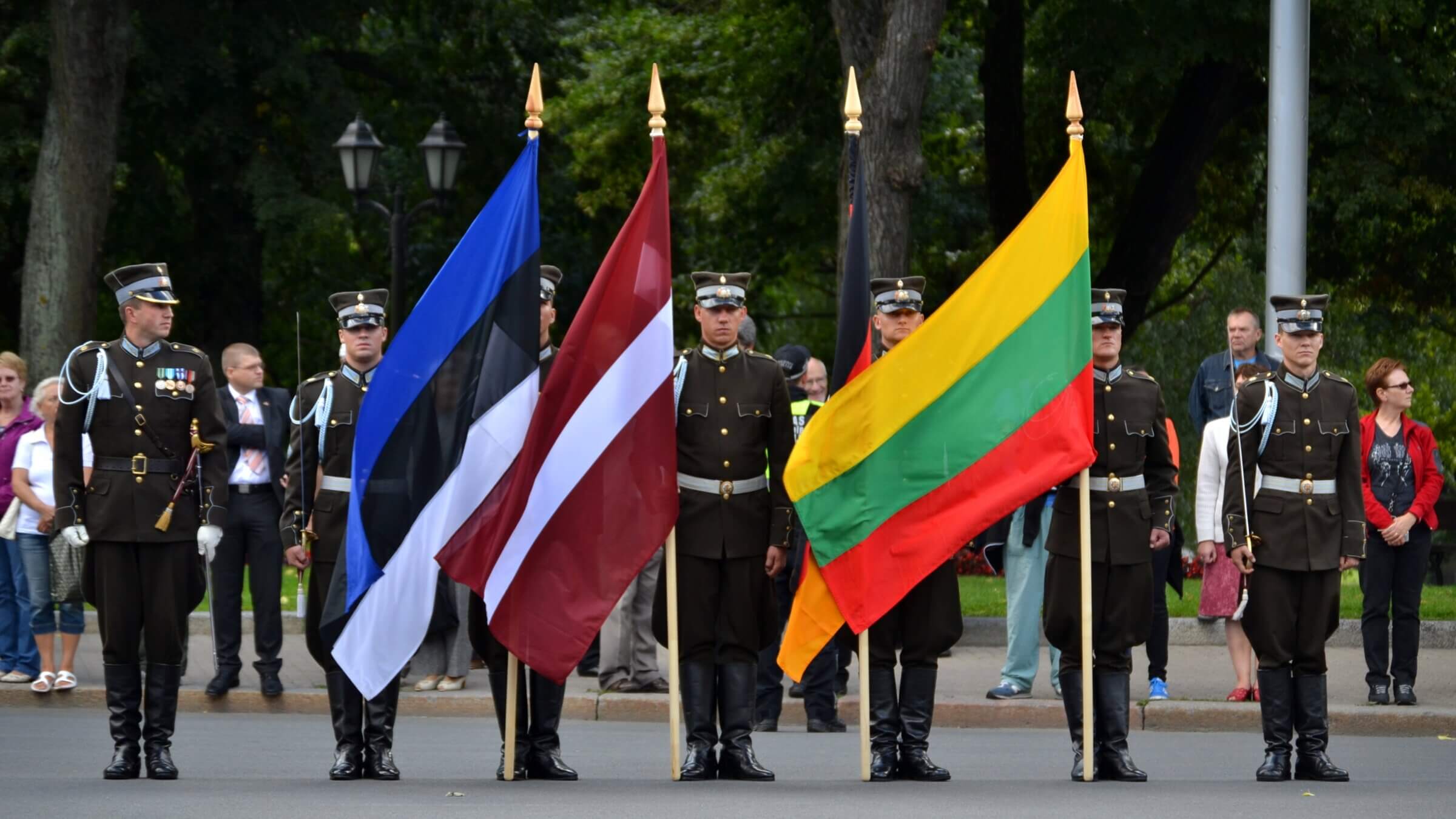In a shift, Latvia and Lithuania are paying Holocaust survivors and heirs for their stolen property
The Lithuania program is open to applications only until Dec. 31

The flags, from left to right, of Estonia, Latvia and Lithuania at a ceremony in Riga, Latvia, in 2012. Photo by Pablo Andrés Rivero
(JTA) — A narrow window is open now through Dec. 31 for Lithuanian Holocaust survivors and their descendants to apply for restitution, under the terms of a law passed last year.
A similar law enacted in Latvia has also taken effect, giving Holocaust survivors from that country the chance to secure one-time payments of about $5,300.
“For many people, these agreements are not just about money; they’re about recognition,” Gideon Taylor, president of the World Jewish Restitution Organization, told the Jewish Telegraphic Agency. “It’s countries coming to terms with the past, acknowledging that there were Jews there, that every house, every building represents an individual story.”
Both of the Baltic nations contained rich centers of Jewish life and history before World War II. The Nazis, together with their Lithuanian and Latvian collaborators, killed 90% of the 220,000 Jews in Lithuania and 75% of the 95,000 Jews in Latvia. Today, there are about 5,000 Jews living in Lithuania and 9,500 in Latvia.
Both countries were occupied by the Soviet Union during the war and remained part of the Soviet Union until its dissolution. That explains why they are only offering restitution more than 80 years after their Jews were expropriated, deported and killed, Taylor said.
“The communist ideology was that they were those who had fought against the Nazis and they had no responsibility,” he said. “So there was never any possibility of reparations or compensation for property, and in addition, property was all confiscated by the communist government and belonged to the state.”
Some Latvian and Lithuanian survivors might draw compensation through the annual reparations packages negotiated by the Conference on Jewish Material Claims Against Germany, which last year secured $1.4 billion, the most ever, for survivors. But the former Soviet countries have not offered their own direct compensation programs, and most programs for descendants of those who were killed, imprisoned or had their property seized by the Nazis and their collaborators have expired.
Starting in 1991, for example, Lithuania passed a series of laws dedicated to the restitution of private property expropriated by the totalitarian regimes — but since these laws required applicants to have current Lithuanian citizenship, they effectively excluded most Holocaust survivors and families who fled the country.
Now, the Lithuanian restitution program is open to both survivors and direct heirs of private Jewish property that was nationalized or illegally expropriated under the Nazi and Soviet regimes. A 2022 law granted 5 to 10 million euros (roughly $5.4 to $10.8 million) to be distributed among Holocaust victims by the Good Will Foundation. The exact amount of each one-time payment will be determined based on the total number of approved applicants, who will receive their compensation by July 1, 2025.
The Latvian program, also launched in 2022, offers a payment of 5,000 euros (about $5,370) to survivors who lived in Latvia as of June 21, 1941, during the country’s brief German occupation, meaning that only people 82 and older could be eligible. The Latvian Jewish Community Restitution Fund will approve the compensation funds on a rolling basis.
The World Jewish Restitution Organization is attempting to find survivors and direct heirs who might be eligible for restitution across the Jewish world, including in Israel, the United States and Canada. Survivor databases have allowed them to contact some people directly. But they are also running social media campaigns, placing ads and even partnering with influencers to reach the shrinking number of people who still hold a connection to the past.
This article originally appeared on JTA.org.
A message from our Publisher & CEO Rachel Fishman Feddersen

I hope you appreciated this article. Before you go, I’d like to ask you to please support the Forward’s award-winning, nonprofit journalism so that we can be prepared for whatever news 2025 brings.
At a time when other newsrooms are closing or cutting back, the Forward has removed its paywall and invested additional resources to report on the ground from Israel and around the U.S. on the impact of the war, rising antisemitism and polarized discourse.
Readers like you make it all possible. Support our work by becoming a Forward Member and connect with our journalism and your community.
— Rachel Fishman Feddersen, Publisher and CEO

























